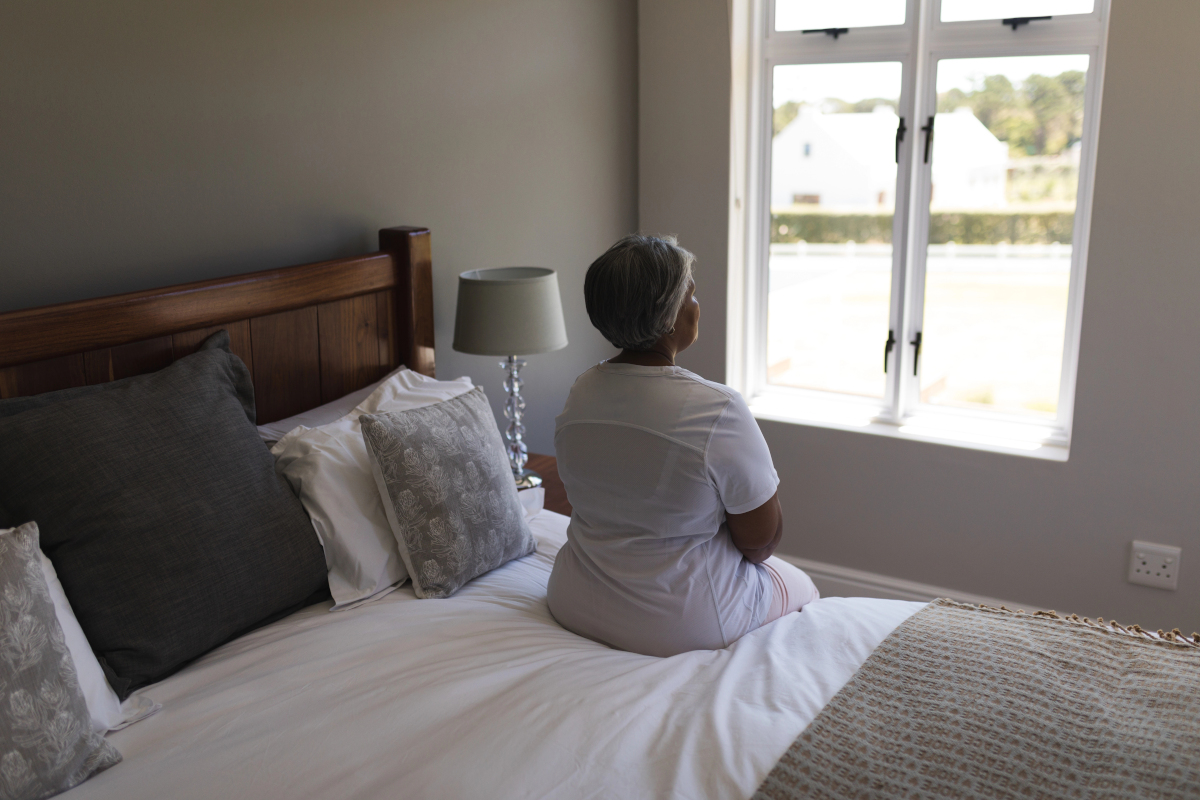Dementia is a term that describes a group of symptoms that can appear due to different diseases. The most common among these is Alzheimer’s Disease, but the list also includes Creutzfeldt-Jakob Disease, Huntington’s Disease, and Korsakoff Syndrome.
The symptoms of dementia may vary in severity but will interfere with a person’s daily life. The most common symptoms include:
- Memory loss
- Difficulty concentrating
- Confusion or disorientation
- Changes in mood
- Inability to concentrate
A person experiencing dementia may find it difficult to handle common tasks like counting change, paying bills, preparing meals, or taking medications. Their need for support will increase as the disease progresses.
Over 55 million people in the world today are living with dementia. That number is expected to nearly double every two decades. That means we can expect to see as many as 78 million dementia patients by 2030 and 139 million by 2050.
Age is a factor in dementia risk. Countries that experience rapid growth in their elderly populations, like China and India, are also going to see an increase in dementia cases.
There is a silver lining to the statistics. Healthcare has improved significantly over the past 100 years. That means more people are living longer, which is why our senior populations are increasing. That growth also means more dementia cases annually.
Each year sees more than 10 million new dementia cases around the world. That means someone is diagnosed every 3.2 seconds. More people must learn how to live with a spouse who has dementia.
It’s impossible to drop a person’s dementia risk to zero. However, there are steps that every senior citizen can take now to lower their risk as much as possible. Whether you are an elderly adult or just started your golden years, it’s never too late to live healthier.
What can senior citizens do now to lower their dementia risk?
Stop Smoking Right Away
A 2020 Lancet Commission study revealed that smoking was a major risk factor for dementia. The results estimated that smoking increases risk by between 30% and 50%. Some researchers estimate that 14% of all global dementia cases may be caused by smoking.
The best way to lower your dementia risk if you are a smoker is to stop right away. You don’t have to do it alone. Talk to your doctor to learn more about ways to stop smoking.
Lower Your Alcohol Intake
Excessive alcohol intake can lead to several health problems. Too much drinking can cause damage to the brain. There is evidence that excessive alcohol consumption can raise dementia risk.
If you are going to drink, make sure you do so in moderation. This is also better for your overall health.
Get Regular Physical Exercise
Many of the conditions that can increase dementia risk are related to health and weight. Being physically active is a great way to combat these problems and many others. Even seniors with limited mobility can engage in some activity to help manage their health.
The Alzheimer’s Society reported that regular exercise can lower the risk of dementia by around 28%. It lowered the risk of Alzheimer’s Disease specifically by as much as 45%.
Consult your doctor before starting a new exercise routine or significantly changing your daily activity levels.
Manage High Blood Pressure
High blood pressure can cause many health problems. That includes increased dementia risk.
A long-term study found that adults who had high blood pressure during their mid-life, or ages 40 to 64, were more likely to develop dementia later, usually vascular dementia.
Manage Your Blood Sugar
Everyone should care about their blood sugar levels. High blood sugar can damage blood vessels, kidneys, eyes, nerves, feet, and gums. It can also cause a person to have a stroke or heart attack.
Blood sugar is connected to your dementia risk. A 2021 Kaiser Permanente Northern California study found that patients with Type 1 diabetes who were hospitalized for even one blood sugar extreme had an increased risk of dementia. Patients who were hospitalized for high and low blood sugar were six times more likely to develop dementia.
Keep Your Mind Sharp
Our brain is like a muscle. We should continue to use it to keep it strong. Adult education has been directly linked to a lower dementia risk. Adults who took classes were 19% less likely to be diagnosed with dementia later in life.
Remember to not neglect your mind when adopting a healthier lifestyle. Many assisted living homes host classes and activities that are great for the brain. You can also ask staff for suggestions for remote courses. Many local colleges will offer senior classes for free or at a reduced cost.
Eat a Healthy Diet
Diet has an impact on overall health and wellness. What we eat also directly affects weight, the digestive system, the immune system, and all major organs.
Healthy, nutritious foods will help you lower your dementia risk. The best options are those found in the Mediterranean diet, like leafy green vegetables, nuts, grains, beans, fish, olive oil, and berries. It is also best to limit servings of cheese, sweets, red meat, fried food, and butter or margarine.
While there isn’t enough evidence to say that omega-3 lowers dementia risk, it is good for you. It’s essential to brain development and is thought to reduce oxidative stress and inflammation in the brain.
A study recently found that the Mediterranean diet lowers dementia risk by as much as 23%. You should also review your diet if you want to learn how to keep your bones strong after age 65. The food we eat affects all parts of our bodies.
Stay Social as You Age
Socializing can help prevent dementia in seniors. Older adults who are isolated have as much as a 60% greater risk of dementia than those who are not. Isolation was also linked to other health problems.
It can be difficult to continue socializing as we age. Our loved ones and friends pass away, and medical conditions can make it difficult to move around and make new connections.
That’s why many seniors look for an assisted living home as a better alternative to living alone. These facilities put seniors close to their peers. They also host gatherings and events regularly that are designed for older adults who may have limited mobility.
Maintain a Healthy Weight
Obesity increases a person’s risk for a long list of health problems, including heart disease and diabetes.
Scientists at McGill University in Montreal analyzed 1,300 brain scans to compare patterns of brain shrinkage in Alzheimer’s patients and people who are obese. They found a similar brain thinning in regions related to memory, learning, and decision-making in both groups. The study indicates that being overweight in middle age is connected to a higher dementia risk.
Obesity also brings on physical changes that are associated with an elevated Alzheimer’s risk, like the accumulation of abnormal proteins and brain blood vessel damage.
Protect Yourself from Falls
Fall risk is a concern for all seniors for many reasons, including dementia. Even a minor fall can lead to sprains or broken bones that can put an older person in the hospital. Head injuries are a serious problem.
The Alzheimer’s Society published the results of a study completed in Denmark. The data showed an increased risk of dementia in the decade after a head injury in people aged 50 and older. Dementia risk increased further in people who had a history of multiple head injuries.
Fall-proof your home and request a fall risk assessment from your doctor. They can recommend changes or mobility aids that will help keep you safe.
Take steps now to lower your dementia risk so you can enjoy more of your golden years as a healthy, active senior.





